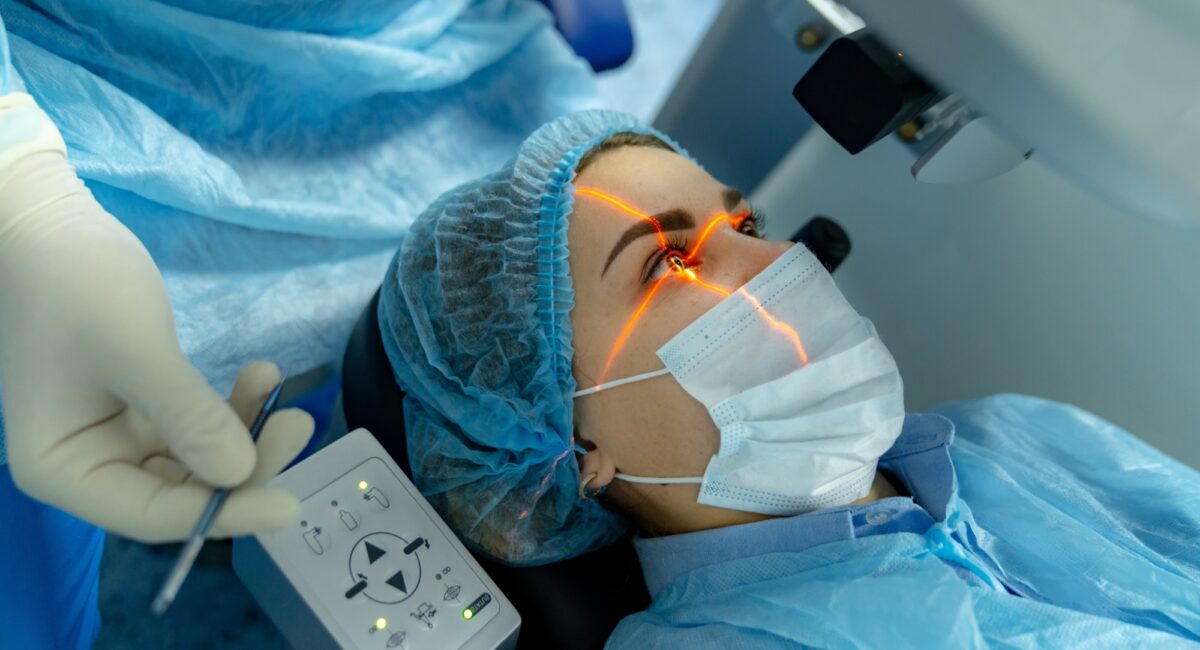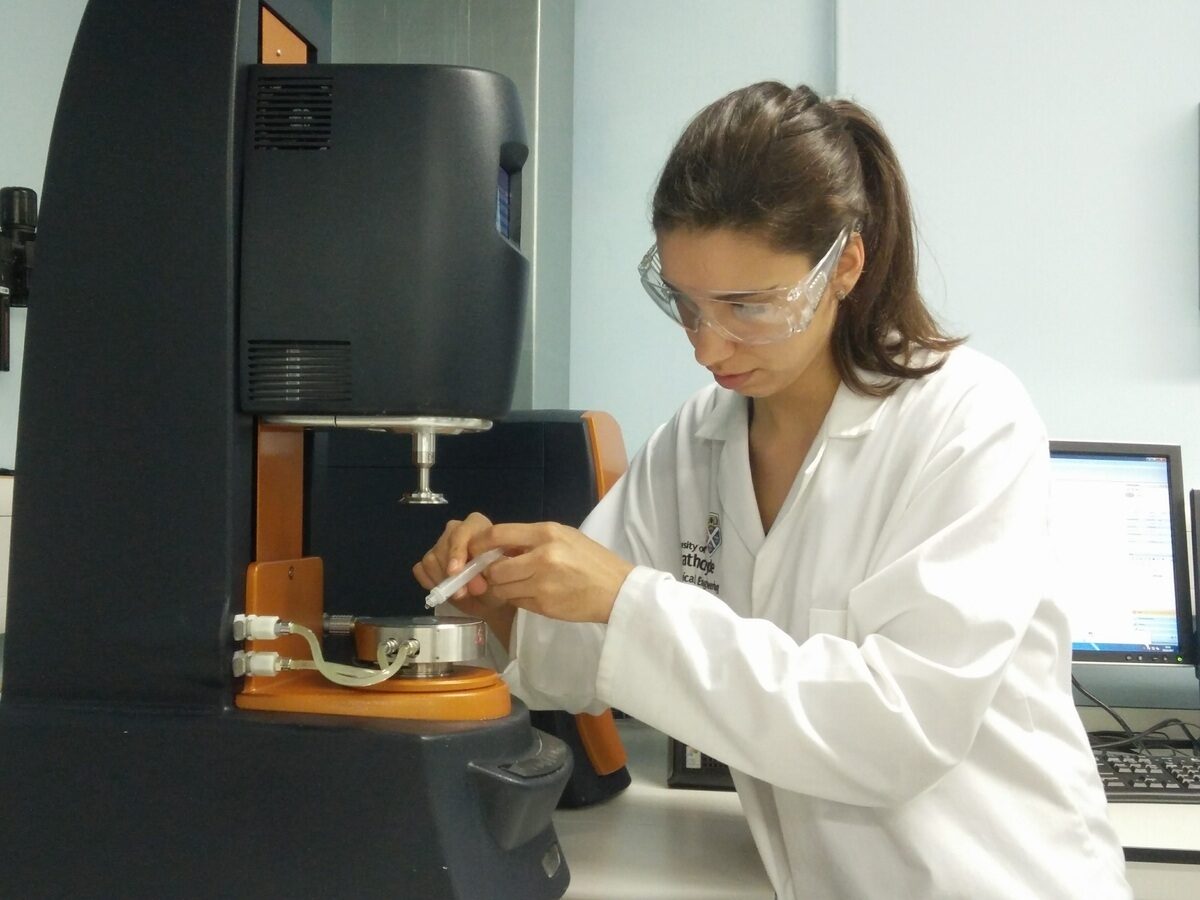

Dr Andreia Fonseca da Silva is an Impact Acceleration Associate at the Edinburgh Complex Fluids Partnership (ECFP), School of Physics and Astronomy, University of Edinburgh.
The team at EI are delighted that she has received an Industry Fellowship from the Royal Society.
Andreia has been involved in several collaborative research projects with commercial partners, assisting industrial clients in understanding and developing new products, technologies and materials in complex fluids/soft matter. Dr Fonseca da Silva said:
Establishing and maintaining collaborations with industrial partners can be challenging. Edinburgh Innovations has been a great ally by supporting and facilitating connections with industrial partners as well as providing advice and guidance during the different stages of those collaborations”.
Dr Denise Li, Business Development Executive, School of Physics and Astronomy, said:
She is an inspirational example to celebrate International Women and Girls in Science Day. With the support from Edinburgh Innovations and ECFP, she has been able to translate her research to solve real world problems in collaboration with external organisations.”
Innovation for cataract surgery
The Industry Fellowship is part of the Royal Society's wider Science and Industry Programme which strives to promote the value and importance of science by connecting academia, industry and government. This Industry Fellowship will enable Andreia to not only expand her fundamental research on complex fluids, but also to develop a strong working relationship with her industrial collaborator, Hyaltech.
Hyaltech, a branch of Zeiss, is a biomedical company that produces hyaluronic acid solutions for use in ophthalmic viscosurgical devices (OVDs). OVDs are injected into the eye by surgeons during cataract surgery. OVDs need to perform a dual role of both spreading over the eye to protect the surface, whilst maintaining a volume in the eye as the lens is replaced. These two aspects require different characteristics and with current OVD technology these functions cannot be simultaneously achieved by injecting only one fluid.
During this fellowship, Andreia will be working on developing a solid scientific foundation of viscoelastic fluid flows, with emphasis on understanding spreading and removal through suction of complex fluids, in order to advance formulation design and facilitate product innovation.

Discover the challenges of Renaissance cosmetics
The Renaissance Goo project, a collaboration led by Professors Wilson Poon and Jill Burke, was commissioned to develop an exhibit ‘The Beauty Sensorium’ where visitors enter the world of Renaissance cosmetics, hair and skincare. This exhibit was part of The Cult of Beauty exhibition (October 2023 - April 2024) at the Wellcome Collection in London and explored notions of beauty across time and cultures.
The exhibition, including a video featuring Andreia, shows how Renaissance cosmetic makers wrestled with many of the same technical challenges in their kitchen as modern soft matter scientists do in their laboratory. The Beauty Sensorium includes five cosmetic samples of varying textures and viscosities, made from ingredients including mutton fat, mastic gum and rose water. Andreia formulated some of the cosmetic samples on show. These are presented in lit glass vessels that will highlight the life of the substance within, how it moves and transforms when animated by stirring or heat. Visitors will catch fragrances of each substance as they walk around the installation and hear the sounds made during their preparation. The substances demonstrate that much of our scientific knowledge is acquired through first-hand, sensory experiences.
Developing award-winning hand gel products
During the COVID-19 pandemic, there was an enormous need for simple, affordable and effective hand disinfectant products. Funding was awarded through EPSRC Impact Acceleration Account Rapid Response for the ECFP team to work with the company Aqualution Systems Ltd., with the goal to investigate the suitability of using their Hypochlorous acid liquid solutions as hand gels.
Andreia and the team selected and tested different thickening agents. Rheological measurements were performed to understand the flow behaviour of the prototyped gels, alongside structural characterisation with state-of-the-art instrument, cryo FIB SEM. Furthermore, the virucidal capacity of the prototypes was acceded in collaboration with Paul Digard from Roslin Institute. This project helped to guide Aqualution toward a suitable gelling agent for their hypochlorous acid formulation. This has enabled the company to launch a new product to market: Salvesan Skin, the first gel hand sanitiser produced using hypochlorous acid. The product has gone on to receive a national prestigious award at the Business Insider Made In Scotland awards, for Best New Product.
To find out how you can access the University’s expertise in complex systems and condensed matter and collaborate on future research projects, contact Denise Li, Business Development Executive, School of Physics & Astronomy Denise.Li@ei.ed.ac.uk
Related Links
Industry fellowship success leads to complex fluid collaboration